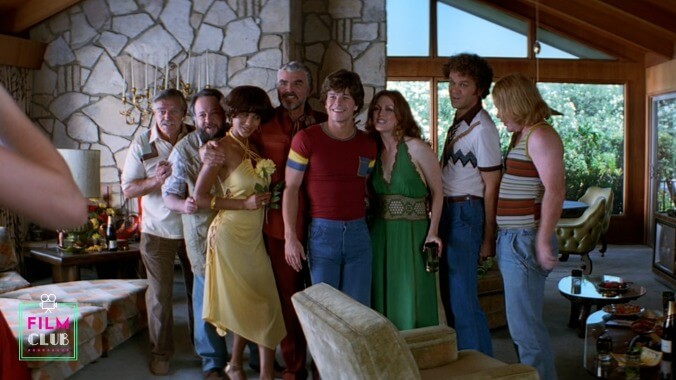1997 was a big year for Paul Thomas Anderson
In the first episode of our four-part series on Paul Thomas Anderson, we revisit Hard Eight and Boogie Nights

Every new movie from Paul Thomas Anderson is an event. That’s certainly how we’ve been treating Licorice Pizza, the writer-director’s latest picture, which hits theaters at the end of November. All month long, in the run-up to its release, critics A.A. Dowd and Katie Rife will be revisiting all of Anderson’s other movies. The four-part series kicks off with a look back at his first two features, which happened to open the same year: the low-key gambler/crime drama Hard Eight, and the porn-industry epic Boogie Nights.
You can hear the entire conversation in the episode above, or read a lightly edited excerpt down below.
A.A. Dowd: I think if there’s an arc to [Paul Thomas] Anderson’s career, it has been shedding some of the more hotshot qualities that defined his work early on.
Katie Rife: Well, he was a boy wonder, you know?
A.A. Dowd: Yeah. He came up in the 1990s, with other filmmakers who came up during the indie boom. I think one of the reasons that Anderson is as revered as he is today is that he never went out of fashion, and he kept evolving as an artist. Anderson is not somebody who flamed out. You don’t look at his work and think he’s some relic of the 90s.
Katie Rife: Right, it doesn’t seem dated, his work now.
A.A. Dowd: Yeah, and a big part of that is that Anderson, like a lot of artists, started out emulating the giant influences on his work. He started doing his take on Robert Altman, on Martin Scorsese, on Jonathan Demme. And eventually, as often happens with great artists, the qualities that felt imitative fell away and Anderson became himself.
Katie Rife: Yeah, exactly. And I think that has a lot to do with Anderson being a film school guy. Beginning with the 70s, where you had the “film school brats,” And then in the 90s, it was a more varied field; not everybody came out of film schools from that 90s wave. But they were similar to the 70s wave in the sense that they were all about digesting and recontextualizing their influences. They were filmmakers who are obsessed with movies.
Listen to Film Club above, subscribe on Apple Podcasts, and give us a five-star rating to help other listeners find us. And while you’re there, check out The A.V. Club’s other podcasts, Push The Envelope and Dial M For Maple.